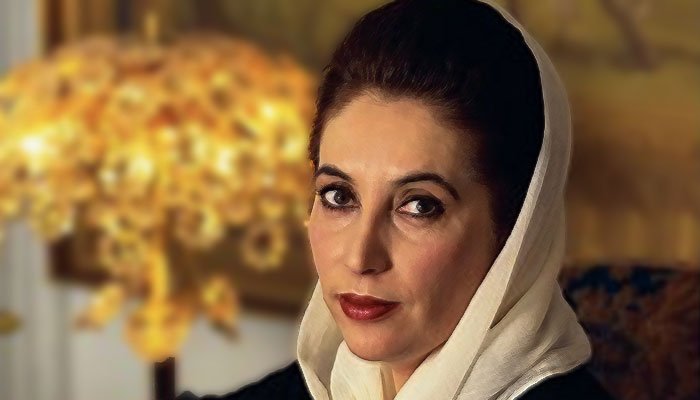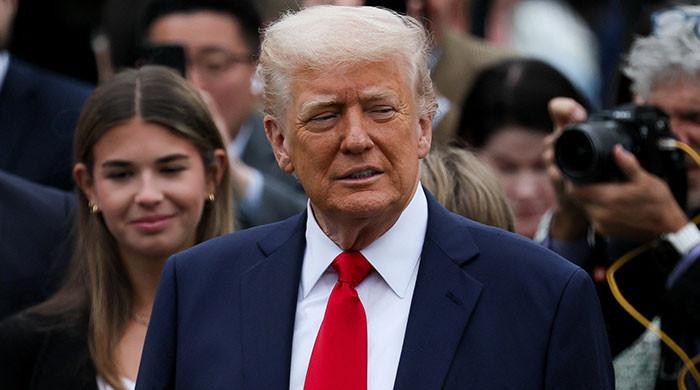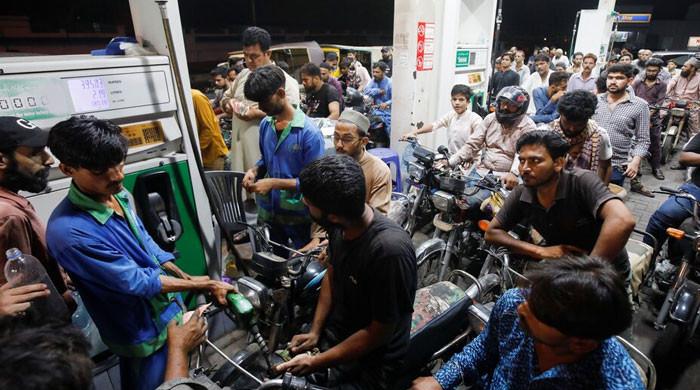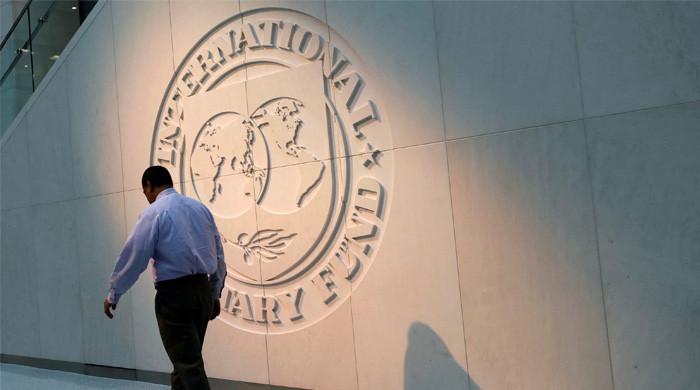My last interview with Benazir Bhutto
In conversation with former PM Benazir Bhutto months before her assassination on December 27, 2007
December 28, 2020

On September 15, 2007, I rushed to the Dubai home of former prime minister Benazir Bhutto. The day was significant. Benazir was ready to return to Pakistan after signing a homecoming deal with military ruler General (retd) Pervez Musharraf.
As I entered, other reporters and cameramen could also be seen sauntering around her property on Emirates Hill.
Benazir finally appeared before the media, dressed elegantly in white and green with a dupatta neatly pinned to her head.
In those days, rumours had been doing the rounds in Pakistan. Some suggested that in an attempt to be prime minister a third time, Benazir had agreed to accommodate Musharraf as president. As part of the deal, she had also agreed that her husband, Asif Ali Zardari, would not return to the country.
Read more: Musharraf’s ‘four deals’
But when I questioned her about the speculations, she vehemently denied them. There was no agreement with Musharraf to keep him in power, she explained. As for Zardari, she referred to him as the “Nelson Mandela of Pakistan” who had to stay out of the country due to his health.
In the same interview, she told me that she had planned to contest the upcoming election from her hometown, Larkana in Sindh.
Benazir had till then been slated to return to Pakistan by the last week of September. But it was the month of Ramzan, which is why her arrival was pushed to mid-October. She told me that her party made the decision taking into consideration that people will not be able to participate in her rallies and long march due to fasting.
“So you are preparing for rallies and a long march?” I asked, picking up on what she said.
“As you know Nasim, I live from suitcase to suitcase,” she replied with a smile, borrowing a line from her autobiography.
Read more: The person Benazir Bhutto named as her killer
Meanwhile, in those days, PML-N head Nawaz Sharif, who was also in exile, criticised her democratic credentials. He had told the media he was certain Benazir would make a deal with the dictator to become prime minister again.
When I asked her about Nawaz's statements, she hit back.
She said the PML-N chief should not forget that her father, former prime minister Zulfikar Ali Bhutto, had chosen martyrdom instead of seeking a pardon. He, too, could have left the country with 40 bags, she said taking a dig at Nawaz's departure in 2000, which was reportedly facilitated by Saudi Arabia.
“I also live in an Arab country” she went on, “But, I am not in favour of a third country meddling in the affairs of Pakistan.”
This was an interesting turn of events, as till a few weeks back both Nawaz and Benazir had shed their past rivalries and were seen working together in exile. They had even signed the historic Charter of Democracy to return democracy in Pakistan.
Their first meeting, in exile, was in Jeddah, Saudi Arabia. I got a chance to catch both of them together when they met a second time in Dubai at then former finance minister Ishaq Dar’s home.
After an exchange of pleasantries, Benazir was seen praising Nawaz's daughters, Asma and Maryam Nawaz, in front of the media. On noticing that Nawaz quickly turned to the cameras and said: “Now I hope you don’t make a headline out of this.”
I had interviewed Benazir Bhutto several times while she was in exile and every time I learned something new about her personality.
Once in Dubai, the day after her husband was released from a prison in Pakistan, I had asked her if his acquittal was part of a deal she had made with the Pakistani authorities.
Read about Benazir Bhutto’s politics of resistance and reconciliation
“How could it be part of a deal?” she asked, “If I had believed in making deals, Zardari would not have spent eight years in jail.”
Standing next to her were children, Bilawal, Aseefa and Bakhtawar. A woman in the front row then asked her what the name “Bakhtawar” meant.
Benazir replied it meant “the one who brings luck.” She added that she strongly believed in how the meaning of names impacts a person’s personality.
At another time, I asked her to sign a copy of her autobiography. “Your surname is Haider?" She asked.
I replied in the affirmative.
“You must be very brave then,” I remember her telling me.
But looking back, the true definition of bravery was Benazir Bhutto, who we lost on a tragic and dark day on December 27, 2007.











